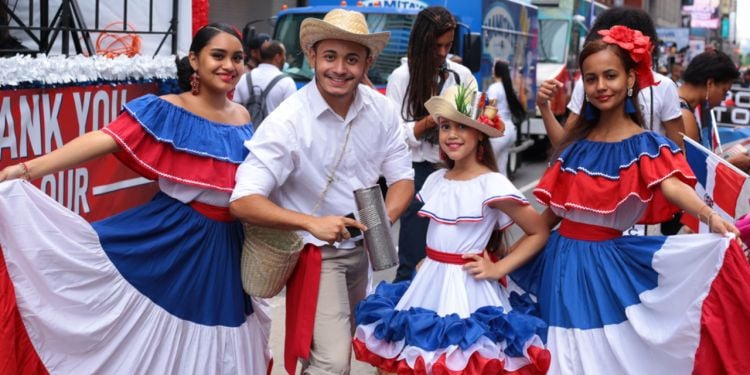
Diversity and inclusion in the Dominican Republic embody intricate and evolving dynamics deeply rooted in the nation's historical, social, cultural, and religious fabric. Here's an overview of how diversity and inclusion unfold and resonate in the Dominican Republic.
Ethnic and racial diversity in the Dominican Republic
The Dominican Republic is ethnically and racially diverse, with a population that reflects a blend of indigenous Taíno, African, and European ancestry. However, like many societies, issues related to racial discrimination and colorism persist:
- ethnic composition: The population of the Dominican Republic is predominantly composed of individuals of mixed ancestry, known as "mestizos", as well as individuals of African and European descent;
- racial discrimination and colorism: Despite its diverse racial makeup, the Dominican Republic struggles with issues of racial discrimination and colorism, where lighter skin tones are often associated with higher social status and privilege.
Socioeconomic inclusion in the Dominican Republic
Socioeconomic inclusion remains a significant challenge in the Dominican Republic, with disparities existing along racial, ethnic, and geographic lines:
- income inequality: There is a notable gap between the wealthy and the poor, with significant income inequality prevailing in the country;
- access to education and healthcare: While there have been efforts to improve access to education and healthcare, disparities persist, particularly in rural and marginalized communities.
Gender inclusion in the Dominican Republic
- Gender dynamics and issues of gender equality are prominent in Dominican society;
- Women continue to face challenges in accessing education, economic opportunities, and political representation;
- Advocacy efforts and policy initiatives aim to address gender-based violence, promote women's rights, and increase female participation in leadership roles.
LGBTQ+ rights and inclusion in the Dominican Republic
The Dominican Republic has seen advancements in LGBTQ+ rights, but challenges remain regarding societal acceptance and legal protections:
- legal recognition: Same-sex marriage is not legally recognized in the Dominican Republic, and LGBTQ+ individuals may face discrimination and prejudice;
- advocacy and activism: LGBTQ+ advocacy organizations and activists continue to work toward greater rights, visibility, and acceptance within Dominican society.
Inclusion for children with disabilities in the Dominican Republic
The inclusion of children with disabilities in the Dominican Republic is an important aspect of efforts to promote diversity and equity in society. While progress has been made in recent years, challenges still exist in ensuring that children with disabilities have equal access to education, healthcare, and social opportunities. Here are some key points regarding inclusion for children with disabilities in the Dominican Republic.
Educational inclusion
- Access to education: Despite efforts to improve access to education for children with disabilities, many still face barriers to enrollment and participation in mainstream schools;
- Special education services: Special education programs and services are available in some schools, but they may be limited in scope and resources;
- Inclusive practices: Inclusive education practices, which involve integrating children with disabilities into regular classrooms alongside their non-disabled peers, are gradually being implemented in some schools.
Healthcare and support services
- Access to healthcare: Children with disabilities may face challenges in accessing healthcare services, including specialized medical care, therapy, and assistive devices;
- Support services: Community-based support services, such as rehabilitation centers and therapy programs, play a crucial role in providing assistance and resources to children with disabilities and their families.
Social inclusion
- Stigma and discrimination: Children with disabilities often face social stigma and discrimination, which can impact their sense of belonging and self-esteem;
- Community engagement: Community-based initiatives and awareness campaigns seek to promote acceptance, inclusion, and equal opportunities for children with disabilities.
Legal and policy framework
- Legal protections: The Dominican Republic has laws and policies aimed at protecting the rights of people with disabilities, including children, and promoting their inclusion in society.
- Implementation challenges: However, implementation of these laws and policies may be inconsistent, and enforcement mechanisms may be lacking.
Parental advocacy and support
- Parental advocacy: Parents and caregivers of children with disabilities often play a critical role in advocating for their children's rights and ensuring their inclusion in various aspects of society.
- Support networks: Support networks and advocacy organizations provide resources, information, and peer support to families of children with disabilities.
The main goal of inclusion is to integrate and ensure equal opportunities for all individuals in society. In the Dominican Republic, this is a legal principle enshrined in their legislation aimed at continuing the pursuit of sustainable development. It is still a work in progress.
Useful links:
We do our best to provide accurate and up to date information. However, if you have noticed any inaccuracies in this article, please let us know in the comments section below.








